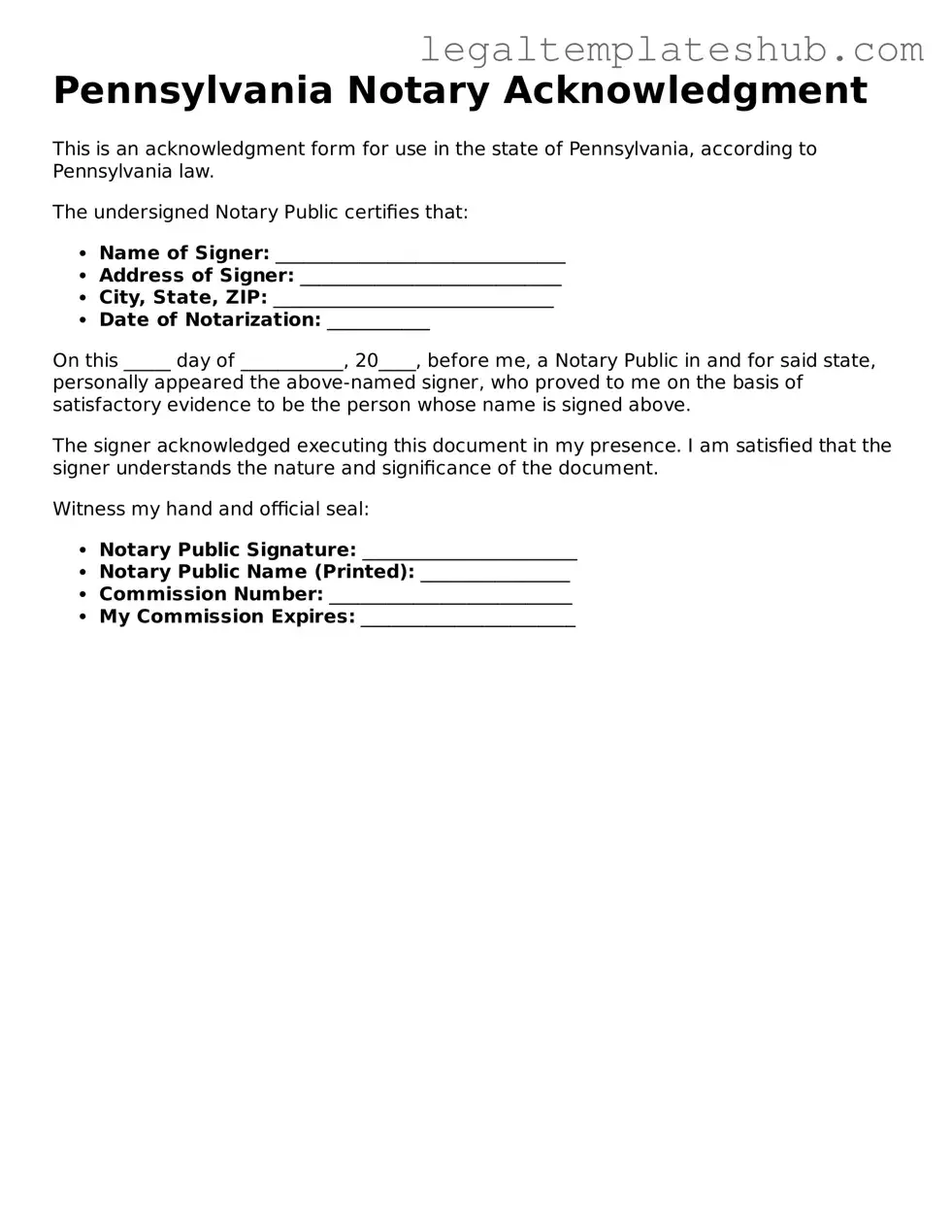Printable Notary Acknowledgement Document for Pennsylvania
The Pennsylvania Notary Acknowledgment form is a legal document that verifies the identity of a signer and confirms their willingness to sign a document. This form is essential for ensuring that important documents are executed properly and can be recognized in legal proceedings. To get started with your own Notary Acknowledgment, fill out the form by clicking the button below.
Access Editor
